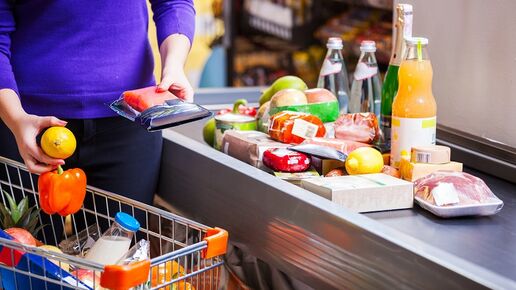Cost a concern for EU consumers, with food safety close behind

The cost of food is weighing more heavily on Europeans today than a few years ago, becoming the main factor influencing food purchases, followed by taste. Close to half consider food safety important too and 41% of EU citizens take for granted that the food they buy is safe.
These findings come from the 2022 Eurobarometer on food safety in the EU, the fourth such survey since 2005. Based on interviews with 27,000 people across the EU, it presents an evolving picture of how Europeans choose food, their food safety awareness and concerns, and who they trust for information on food safety issues.
Global issues make a mark
EFSA’s Executive Director, Bernhard Url, said: “Much has happened since our last survey in 2019, not least a global pandemic and the outbreak of war in Europe. Such events have dramatic consequences and unsurprisingly we see that for many Europeans a rise in the cost of living is affecting their food choices more than before.
“On the other hand, food safety remains important for many EU citizens and it is encouraging to see that almost half of them care about eating healthily as much as they do about food risks.”
EU food safety at 20 – addressing the risks of tomorrow
This latest snapshot of citizens’ views comes as the EU food safety system, EFSA and food safety bodies in several Member States turn 20. They were set up in 2002 to give food safety in Europe a strengthened scientific basis, harmonised rules, and to boost cooperation across the continent.
Mr Url stated: “This milestone is an achievement for many organisations, scientific experts and other stakeholders in our system. Encouragingly two-thirds of European citizens recognise that the EU and Member States are working together, not in isolation, to make this a reality.
“The increasing pace of innovation and technical complexity in how we produce, purchase and consume our food are further drivers for strong cooperation across countries and across scientific disciplines.
“The 2022 Eurobarometer also shows that a majority of our citizens recognises that the state of the environment, animals and plants impacts human health. This is encouraging, as we transition towards sustainable food systems and ‘One Health’ risk assessment.”
Trust in science holds firm
Seven in 10 Europeans recognise the role of scientists in making sure our food is safe and 8 in 10 trust them for food safety information. Likewise, trust in national, and EU institutions is high at about two-thirds.
Barbara Gallani, Head of Communication and Partnership at EFSA, said: “These findings are invaluable in our day-to-day work as well as our strategic long-term planning.
“We have developed tailored summaries and data tools for our Member State partners so they can use the Eurobarometer results to support their own public information and outreach efforts about food safety.”
Selected other findings
- Over a third of Europeans have a very high (21%) or high (17%) level of awareness of food safety topics, i.e. they have heard about 10 or more of 15 topics surveyed.
- They are most likely to have heard about additives in food or drinks (70%), pesticide Stof die wordt gebruikt voor het doden of bestrijden van plaagorganismen, met inbegrip van ziektedragende organismen en ongewenste insecten, dieren en planten residues in food (65%), antibiotic, hormone or steroid residues in meat (63%) or diseases found in animals (60%).
- Pesticide residues in food (40%) and antibiotic, hormone or steroid residues in meat (39%) top the list of food safety-related concerns among Europeans. Fewer people were concerned with plant diseases (11%), use of new biotechnology in food production (8%) and nanotechnology applied to food production (5%).
- Some 6 in 10 (61%) indicate television, on a TV set or via the internet, as one of their main sources of information about food risks, followed by family, friends, neighbours, or colleagues (44%) and internet search engines (37%), with important differences between generations.
- More than 8 in 10 respondents trust doctors (89%), university/publicly-funded scientists (82%) and consumer organisations (82%) for information on food risks.
- A minority of Europeans would not change their behaviour in the event of a food scare (21%). Among these, the top reasons given included already preparing food in the recommended way (45%), and the belief that all foods involve some risk and it’s impossible to avoid them all (25%).
How to contact us
EFSA Media Relations Office
Tel. +39 0521 036 149
E-mail: press [at] efsa.europa.eu (Press[at]efsa[dot]europa[dot]eu)
(Only if you are a member of the press)
Ask a Question Service
You have a question about EFSA’s work? Contact our Ask a Question service!